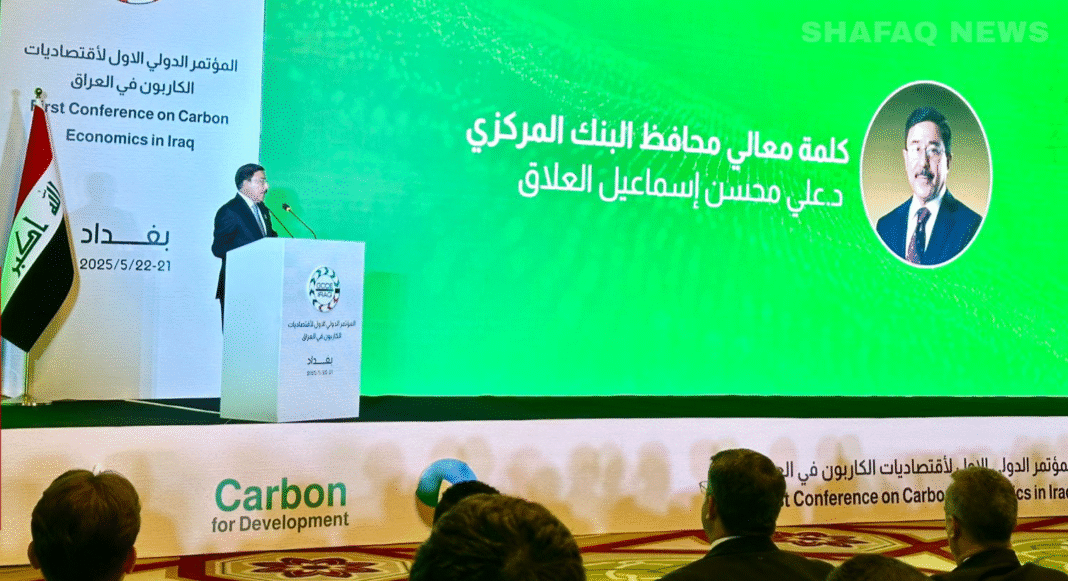Iraq has launched a bold new strategy to promote green finance and protect its environment. The Central Bank of Iraq (CBI) has begun issuing specialized banking licenses to support climate-focused projects. This Iraq green finance drive marks a major step forward in Iraq’s push for environmental sustainability and financial modernization.
At Iraq’s first Conference on Carbon Economics, CBI Governor Ali Al-Alaq emphasized the importance of climate policies in Iraq’s financial system. He explained that Iraq’s monetary policy now encourages green investments. Moreover, the Central Bank is offering incentives for environmental projects. Banks are also expected to manage climate risks more effectively.
To drive this green shift, the CBI introduced a major initiative worth 1 trillion Iraqi dinars. The plan encourages a transition from fossil fuels to renewable energy. It also supports carbon reduction efforts across the country. This initiative already funds projects like palm farming, waste recycling, the Abu Ghar fields in Samawah, and Iraq’s Green House Project.
The green finance drive also includes international partnerships. The CBI is working with global organizations, including the World Bank. Together, they are designing a green finance model aligned with the country’s 2023–2029 sustainability roadmap. This roadmap aims to improve environmental, social, and governance (ESG) practices across Iraq’s banking sector.
In another significant measure, the CBI allocated 500 million dinars per facility to help modernize brick factories. These funds will support a switch from black oil to cleaner liquefied gas. Additionally, the bank has contributed 1 billion dinars to Iraq’s Environmental Protection and Improvement Fund. This money will fight air pollution, grow more green areas, and lower toxic emissions.
Under the Energy Initiative, the CBI continues to finance waste recycling to prevent land pollution. This effort focuses especially on landfills, which pose serious threats to farming and housing.
The green finance drive also extends to agriculture and community support. Through its Prospects program, the CBI has allocated 3 billion dinars to small farming projects. Displaced people in Nineveh and Duhok will benefit most from these targeted investments. The program runs in cooperation with the International Labour Organization and other financial partners.
In one of its largest contributions, the Central Bank of Iraq committed nearly 350 billion dinars to urban afforestation. This initiative aims to plant green belts around city centers. These forests will act as barriers against dust storms and help slow desert expansion.
The green finance drive places Iraq on a promising path toward cleaner energy, stronger environmental protection, and a resilient economy.


